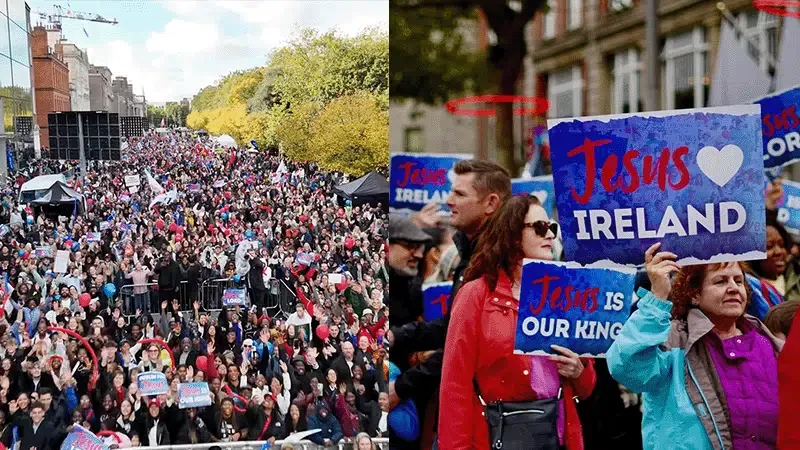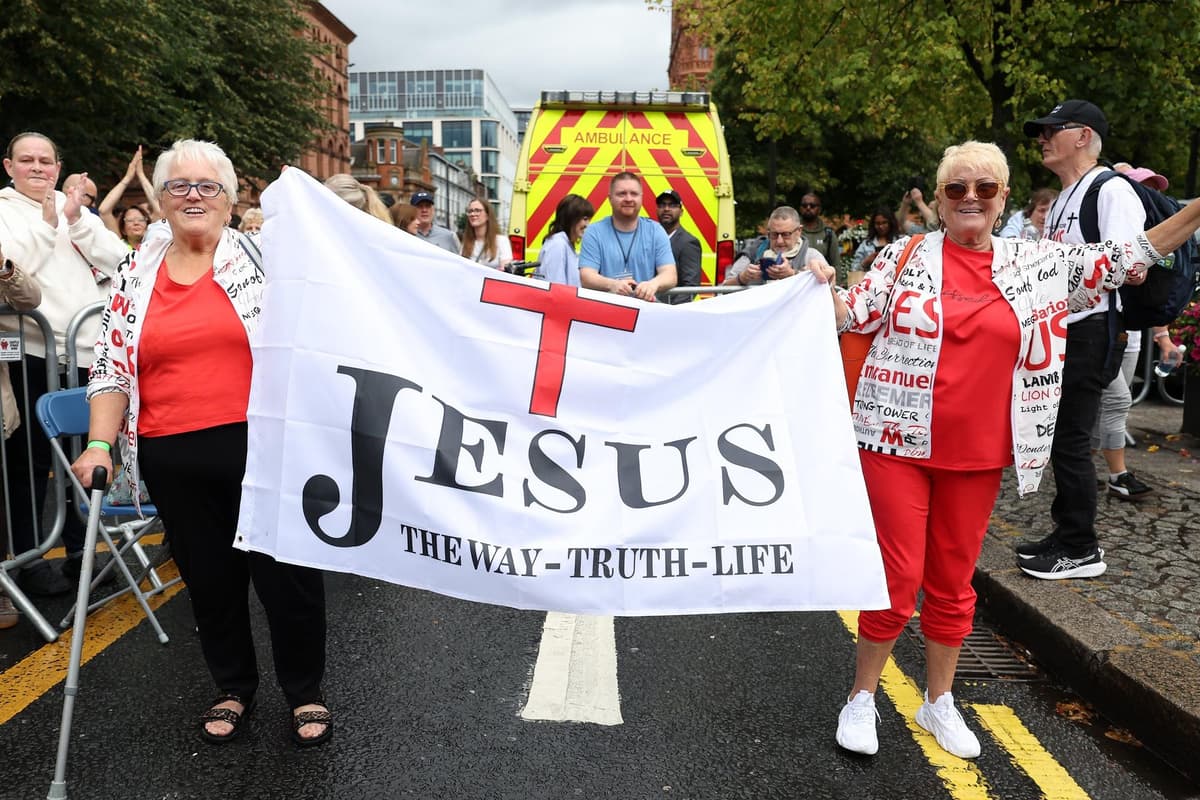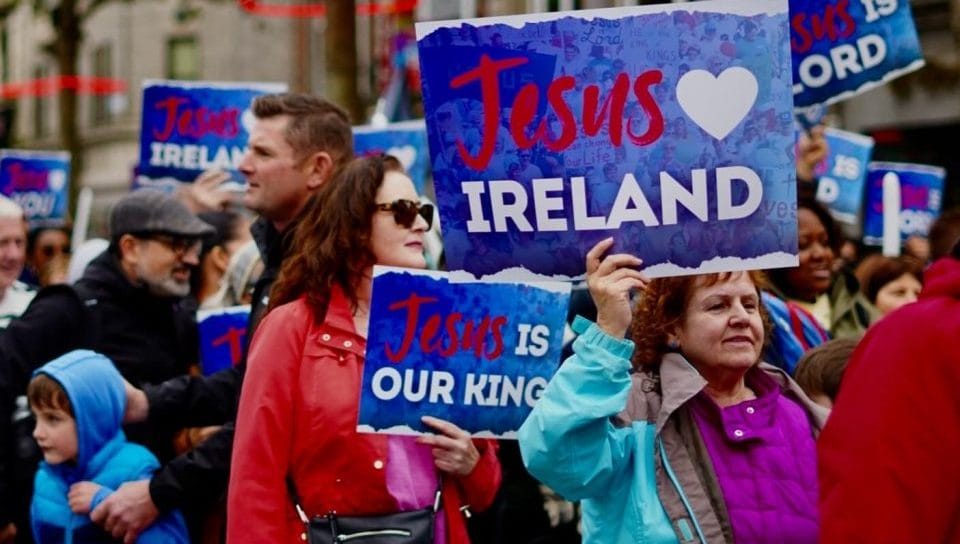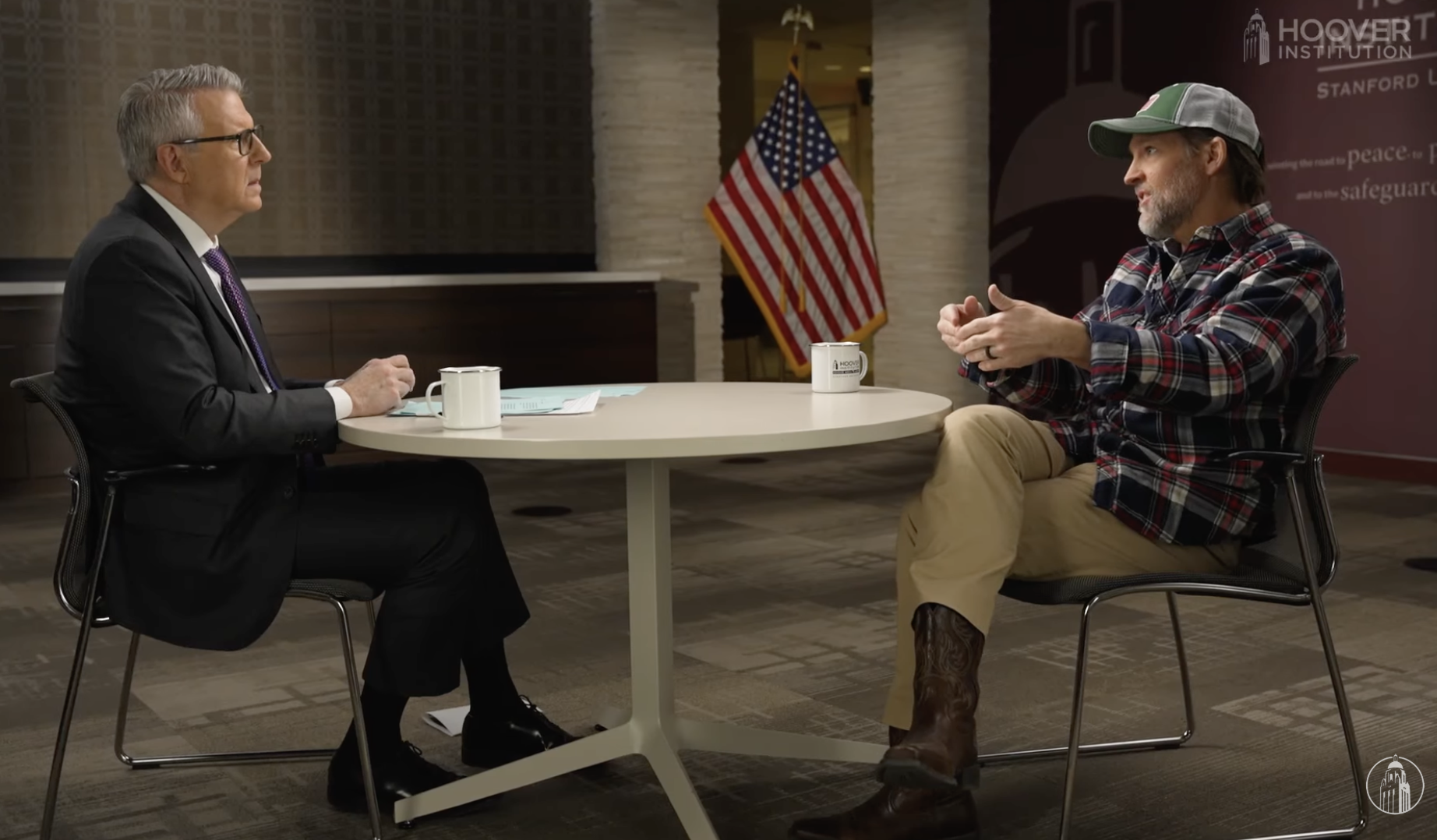30,000 March for Jesus in Belfast and Dublin

October 11-12, 2025, more than 30,000 Christians took to the streets in Belfast and Dublin for coordinated "March for Jesus" events. The Christian Institute reported the marches in their October 10, 2025 news briefing as "a celebration for Jesus in full public view."
The marches represented one of the largest public demonstrations of Christian faith in Ireland in recent years. Participants from various denominations, including Catholic, Protestant, Pentecostal, and independent churches, gathered to worship publicly, sing hymns, and proclaim their faith in city centers.
In Belfast, approximately 15,000 believers marched through city streets, while Dublin saw similar numbers. Organizers described the events as non-political celebrations of Christian unity and public witness. The marches featured worship bands, prayer stations, and testimonies from participants about their faith.

According to event organizers, the marches aimed to demonstrate that Christianity remains vibrant in Ireland despite declining church attendance statistics and increasing secularization. Participants ranged from families with children to elderly believers, representing broad demographic diversity.

The coordinated timing in both Northern Ireland's Belfast and the Republic of Ireland's Dublin symbolized Christian unity across the historical political and sectarian divide. Catholic and Protestant believers marched together, emphasizing their shared faith in Christ over historical tensions.
Local media coverage varied, with some outlets providing straightforward reporting while others framed the marches as unusual public religious displays in increasingly secular cities. No significant counter-protests or disruptions were reported, though the events required substantial police coordination for crowd management and traffic control.
THE CRUSADERS OPINION
Thirty thousand Christians marching through Belfast and Dublin represents something VERY rare and precious: public, unashamed witness to Jesus Christ in post-Christian societies that have largely relegated faith to private expression.
This wasn't political lobbying or culture war posturing.
It was Christians doing what Christians should do: proclaiming Christ publicly and celebrating that proclamation together.
The significance lies partly in what didn't happen. No riots. No violence. No burning effigies or hateful slogans. Just believers singing, praying, and testifying to their faith. This stands in stark contrast to other mass public gatherings in European cities, which increasingly feature either political rage or hedonistic celebration. The March for Jesus demonstrated that Christian faith produces fundamentally different public presence: joyful, peaceful, and oriented toward transcendent reality rather than temporal grievances.
The cross-border, cross-denominational character deserves special attention. Ireland's history is soaked in blood spilled over religious and political divisions between Catholics and Protestants. That 30,000 believers from both traditions would march together in Belfast and Dublin simultaneously signals something profound: the gospel transcends tribal identity. When Christians prioritize Christ over cultural Catholicism or Protestant Ulster identity, healing becomes possible.
This is Christian unity functioning as it should. Not institutional merger that papers over theological differences, but practical cooperation around central truth: Jesus is Lord, He died for our sins, He rose from the dead, and following Him matters more than our denominational distinctives. Reformed believers and charismatic Catholics might disagree about ecclesiology, but they can march together proclaiming the Apostles' Creed.
For pro-Christendom Christians, these marches represent both encouragement and challenge. The encouragement: Christianity isn't dead in Europe. Thirty thousand believers willing to publicly identify with Christ in increasingly secular societies demonstrates residual strength and emerging renewal. The secularization narrative, while real, isn't the whole story. Faith persists, sometimes flourishing in unexpected ways.
The challenge: Why don't we see this elsewhere? Why aren't Christians in London, Paris, Berlin, or New York organizing similar mass public witness? The answer likely involves cultural factors, organizational capacity, and courage. Ireland's Christians, perhaps because they've watched their societies secularize rapidly, recognize the urgency of public witness. They understand that faith invisible in public square becomes irrelevant in public life.
The marches also reveal Christianity's demographic and spiritual reality in the West. Thirty thousand is significant but represents small percentage of Ireland's population. The believers marching are committed minority in societies that have largely abandoned Christian practice. This remnant character matters: biblical history repeatedly shows God working through faithful minorities rather than nominal majorities. Quality of faith matters more than quantity of adherents.
Public Christian witness also serves evangelistic purpose often overlooked by critics. Secular Irish citizens saw families celebrating faith, believers worshiping joyfully, Christians proclaiming hope. Some surely wondered: What motivates these people? What do they have that we lack? In societies marked by rising depression, addiction, loneliness, and meaninglessness, joyful Christians become sign of contradiction pointing toward alternative way of life.
The marches' explicitly non-political character deserves recognition. Christianity in the West faces constant temptation to become baptized version of partisan politics, either progressive or conservative. The March for Jesus resisted that temptation, keeping focus on Christ rather than political platforms. This isn't retreat from public square; it's proper ordering of priorities. Political positions should flow from Christian conviction, not vice versa.
For those concerned about Christianity's public presence, these marches model way forward: organized, peaceful, joyful public witness that invites rather than condemns, celebrates rather than protests. Western Christianity needs more of this, less of the angry culture war posturing that alienates potential converts while failing to change culture.
The coordination across Belfast and Dublin also demonstrates organizational capacity often absent in Western Christianity. Bringing 30,000 people into streets requires leadership, planning, communication, and unity of purpose. That Irish Christians accomplished this suggests infrastructure and commitment that could be deployed for other purposes: serving the poor, evangelizing communities, advocating for justice, building Christian institutions.
Ireland's recent rapid secularization provides context for these marches' significance. In one generation, Ireland transformed from one of Europe's most Catholic nations to one embracing secular progressive values: legal abortion, same-sex marriage, declining Mass attendance, clerical abuse scandals undermining Church authority. The 30,000 marchers represent believers who watched this transformation and decided they wouldn't go quietly into cultural irrelevance.
Their witness poses implicit question to secular Ireland: Has abandoning Christianity produced the promised liberation and fulfillment? Or has it created new forms of bondage: addiction, isolation, demographic collapse, loss of meaning? The marchers' joy suggests they've found what secularism promises but cannot deliver: purpose, community, hope, and transcendent meaning.
The marches also implicitly challenge Christians elsewhere. If Irish believers can organize 30,000 person public witness in post-Christian context, why can't Christians in other Western nations? The obstacles aren't primarily logistical; they're spiritual. Irish Christians possess something many Western believers lack: willingness to be publicly identified with Christ regardless of social cost.
Some will critique the marches as performative, mere religious theater accomplishing nothing concrete. This misunderstands Christian witness. Public proclamation of faith matters because it testifies that Christ is Lord over public life, not just private devotion. It challenges secularism's assumption that religion belongs only in personal sphere. It demonstrates believers' refusal to accept cultural marginalization.
For Christian unity, the marches provide template. Denominational differences didn't prevent Catholics and Protestants from marching together because they organized around gospel essentials rather than theological particulars. This suggests path forward: cooperate around core Christian convictions while maintaining theological integrity on disputed matters. Unity doesn't require uniformity.
The 30,000 Irish believers marching for Jesus likely won't reverse Ireland's secularization overnight. But they've accomplished something equally important: they've shown fellow believers that public Christian witness remains possible, they've reminded secular society that Christianity hasn't disappeared, and they've planted seeds that may bear fruit in unexpected ways and unexpected times.
In age when Western Christianity often seems divided, declining, and demoralized, 30,000 Christians marching joyfully through Irish cities testifies that the reports of Christianity's death are greatly exaggerated. The faith that built Western civilization hasn't finished its work yet.





